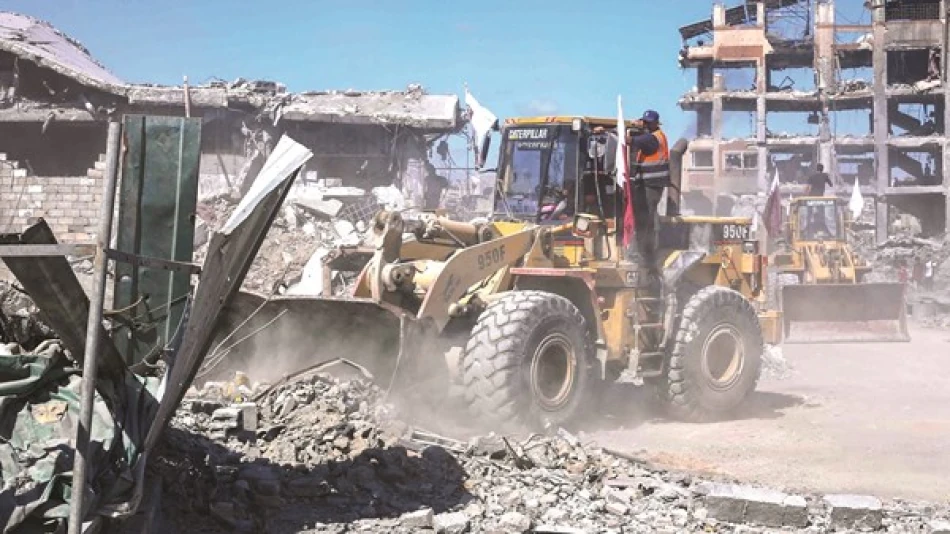
Gaza Reconstruction Begins: Debris Cleared, Roads Reopened to Restore Normalcy
Gaza municipalities have started clearing rubble from main streets and reopening roads as Palestinians begin returning to their homes following the ceasefire between Israel and Hamas. But the scale of destruction is staggering - UNICEF reports that 9 out of 10 homes in Gaza have been destroyed or damaged, leaving 288,000 Palestinian families without shelter.
Heavy machinery and trucks are now working to clear debris from Gaza's main arteries, particularly as thousands of displaced residents make their way back from southern Gaza to the north. Yahya al-Sarraj, mayor of Gaza City, confirmed that all Gaza municipalities launched a major campaign to open streets and roads immediately after the ceasefire took effect last Friday.
The numbers paint a grim picture of what Palestinians are facing. According to UNICEF's communications director Tess Ingram, 90% of Gaza's buildings were either destroyed or damaged during the war. Most residents now live either in homes without walls or can't find their houses at all, forcing them into tents.
Humanitarian organizations are ramping up operations as aid deliveries resume into Gaza. But basic supplies like food, clean water, medicine and hygiene products are nearly depleted. Hundreds of thousands of displaced families remain crammed into overcrowded tents under harsh conditions.
Ismail al-Thawabteh, director general of Gaza's government media office, says the situation remains catastrophic with no real progress on aid deliveries. He's calling for border crossings to open quickly and for 600 aid trucks daily. The priority needs are food, medicine and temporary shelter until reconstruction can begin.
Gaza's water crisis adds another layer of urgency. Municipality spokesperson Asim al-Nabih says residents struggle with water shortages and most available water isn't safe to drink. The healthcare system also needs immediate support to repair what's left of medical facilities.
Once the Rafah crossing is ready, priority for travel will go to wounded patients needing surgery and students planning to study abroad. The ceasefire has created a small window for Palestinians to assess the damage and begin the long process of rebuilding their lives, but the scale of destruction means recovery will take years, not months.
Most Viewed News

 Layla Al Mansoori
Layla Al Mansoori






